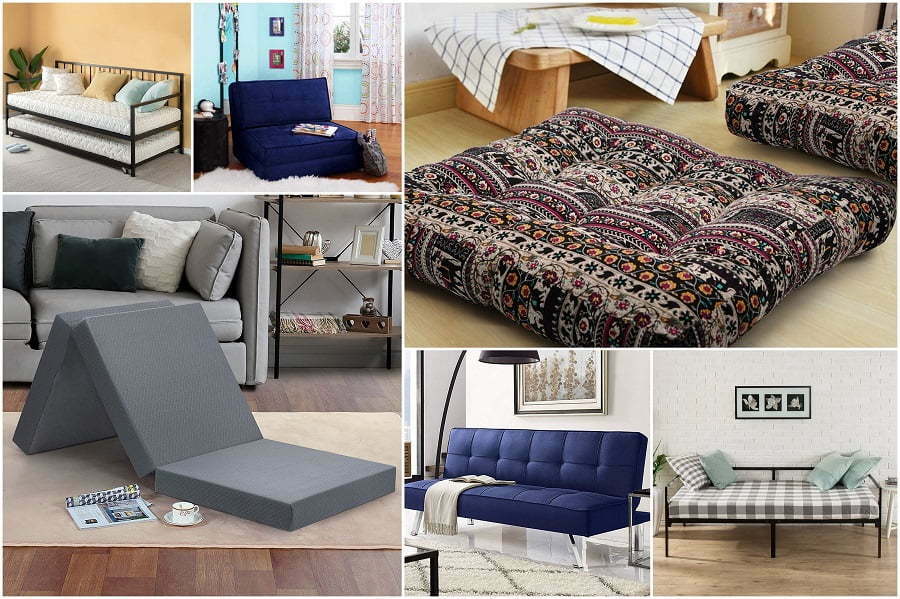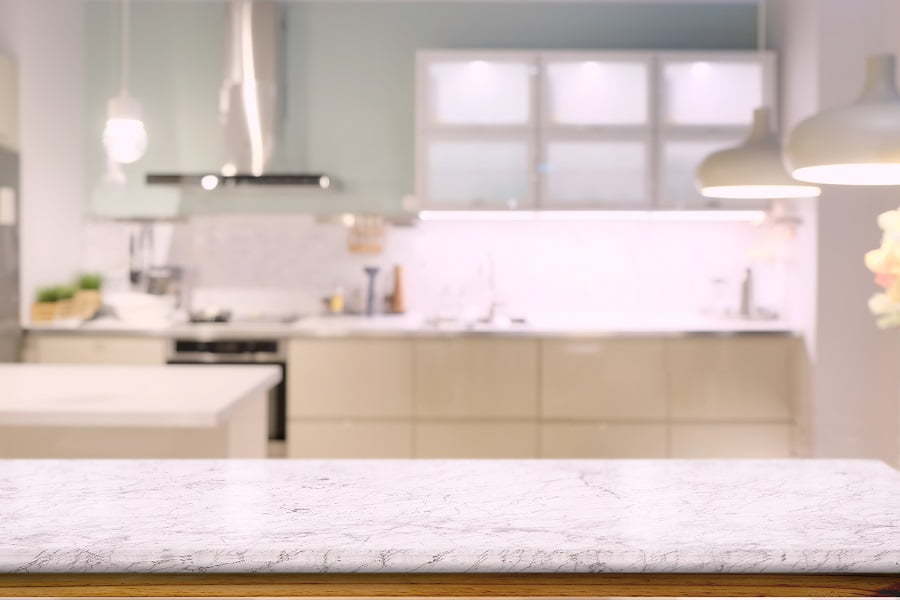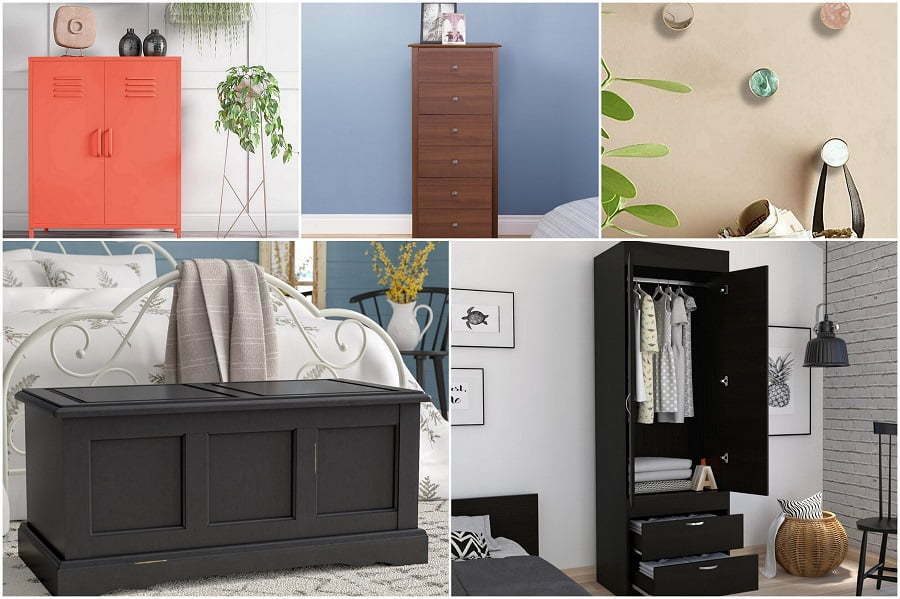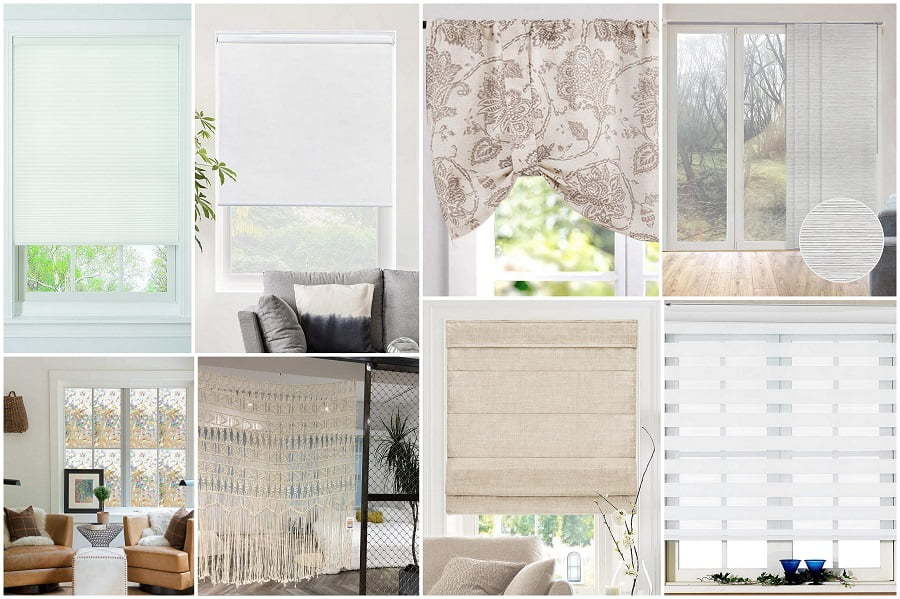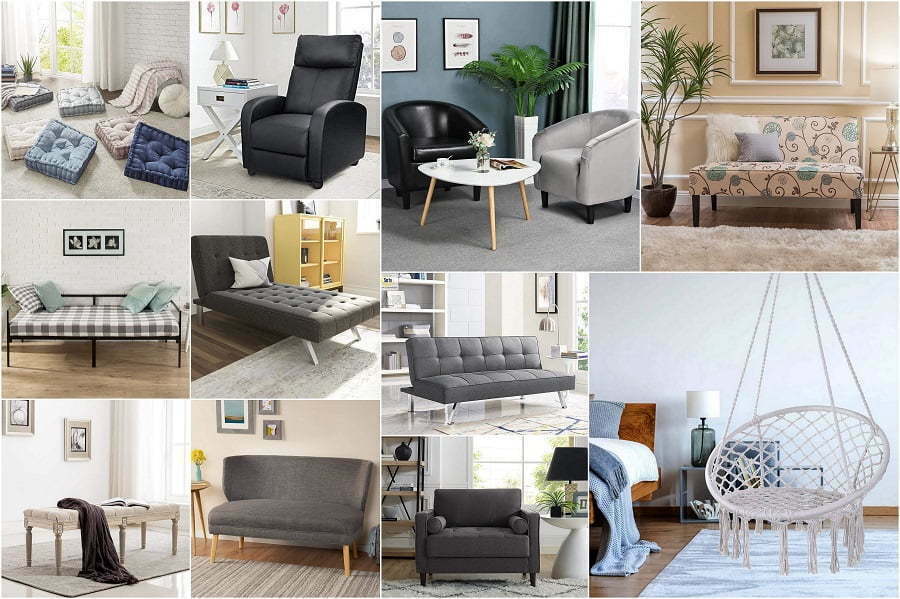Last updated on
Looking for creative and budget-friendly alternatives to traditional trash cans? Check out these ideas that offer unique advantages and disadvantages, perfect for any home decorator!
Home decor doesn’t have to break the bank, and sometimes the most creative solutions come from unexpected places. Take your trash can, for example.
It’s a necessary item in any home, but it doesn’t have to be an eyesore or take up valuable space. In fact, there are plenty of alternatives to traditional trash cans that can add style and function to your home decor.
In this article, we’ll explore 20 different ideas for trash can alternatives, complete with their advantages and disadvantages so you can find the perfect fit for your home and budget. Get ready to think outside the bin!
Compost Bin
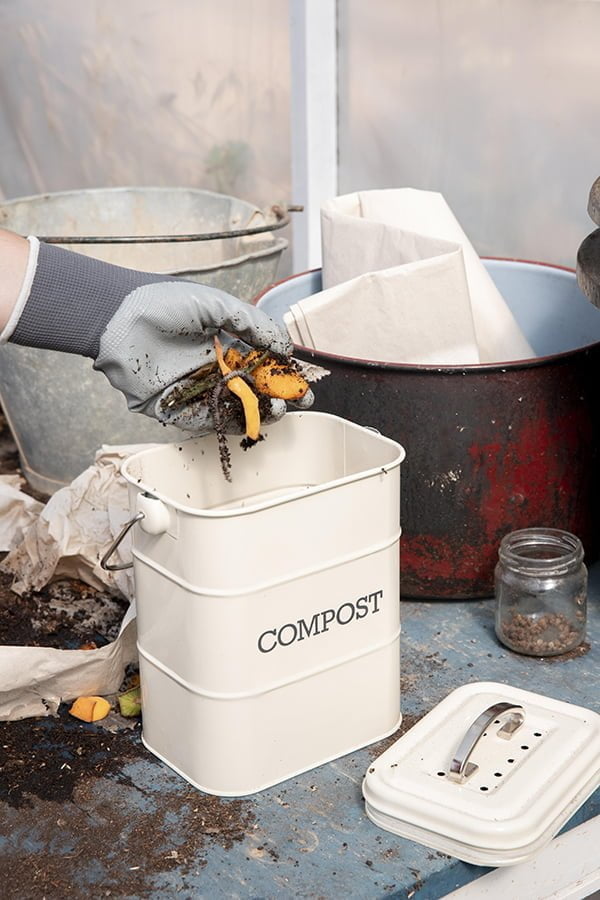
One of the most eco-friendly alternatives to a traditional trash can is a compost bin. Composting is the process of breaking down organic materials, such as food scraps and yard waste, into nutrient-rich soil that can be used for gardening or landscaping.
The advantages of using a compost bin are numerous. First and foremost, it reduces the amount of waste sent to landfills which helps reduce greenhouse gas emissions and saves space in landfills.
It provides an excellent source of natural fertilizer for plants without relying on harmful chemicals.
However, there are also some disadvantages to consider when using a compost bin as your primary “trash” receptacle. For one thing, not all types of materials can be added to the compost pile – meat products should be avoided due to their potential attraction for pests like rats or raccoons.
Another consideration is that depending on where you live and how much space you have available outside your home may limit whether this option works well for you or not.
Recycling Center
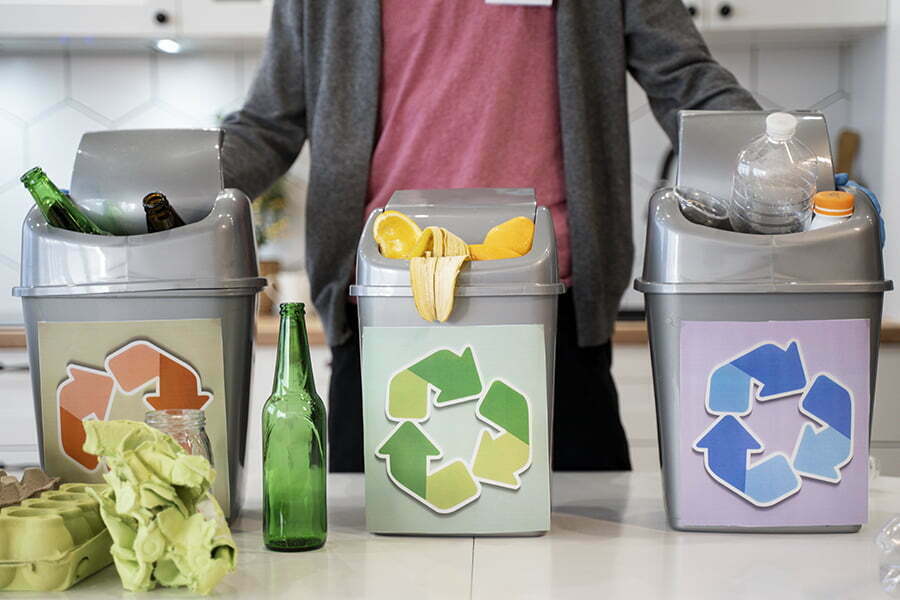
This option allows you to separate your waste into different categories, such as paper, plastic, glass and metal.
By doing so, you are not only reducing the amount of waste that ends up in landfills but also helping conserve natural resources by allowing materials to be reused.
Advantages of having a recycling center include reducing your carbon footprint and promoting sustainability. Many cities offer curbside pickup for recyclables or have designated drop-off locations making it easy for homeowners who may not have access to their own recycling facilities.
However, one disadvantage is that sorting through all the different types of recyclable materials can be time-consuming and confusing at first if you’re new to it. It’s important also note that some items cannot be recycled depending on where you live or what type of facility processes them.
Reusable Bags
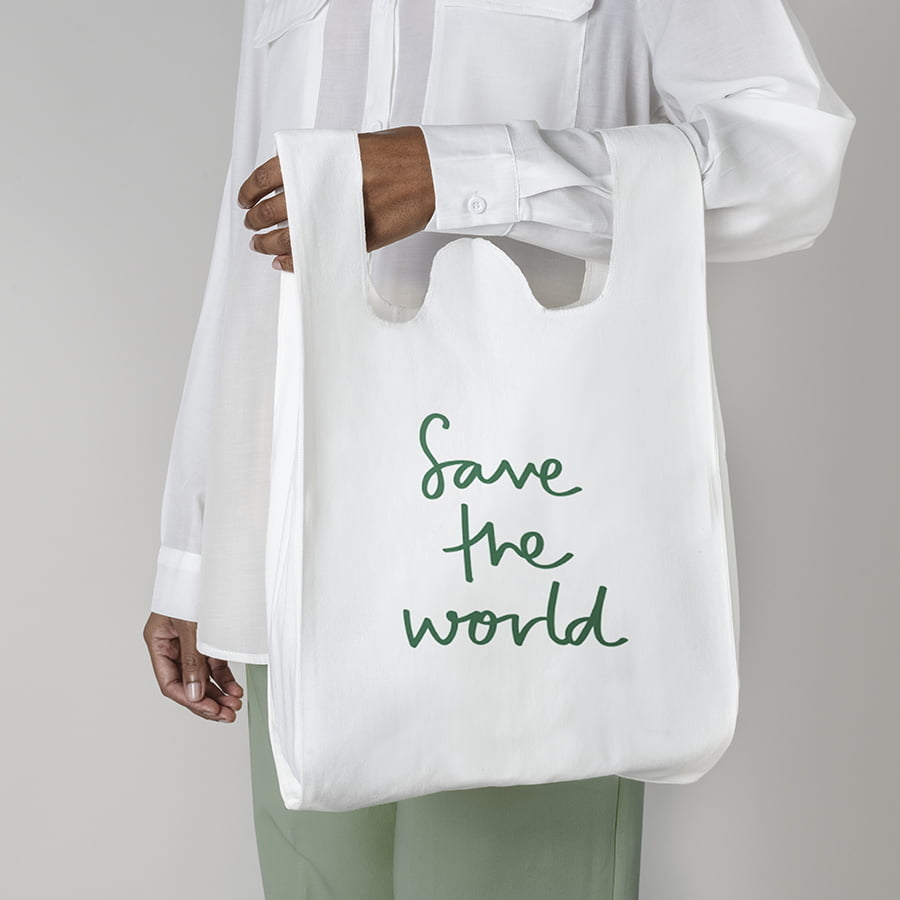
These bags are made from durable materials such as canvas, nylon or polyester and can be used over and over again.
They come in various sizes, colors, and designs that can match any home decor.
The advantages of using reusable bags as a trash can alternative are numerous. First off, they reduce waste by eliminating the need for disposable plastic garbage bags which take hundreds of years to decompose in landfills.
Secondly, they save money since you don’t have to keep buying new garbage bags every week or so.
However, there are also some disadvantages when it comes to using reusable bags as a trash container substitute. One major drawback is that these types of containers may not hold up well against wet or heavy waste like food scraps or broken glass which could cause leaks and spills if not disposed properly.
Worm Farm
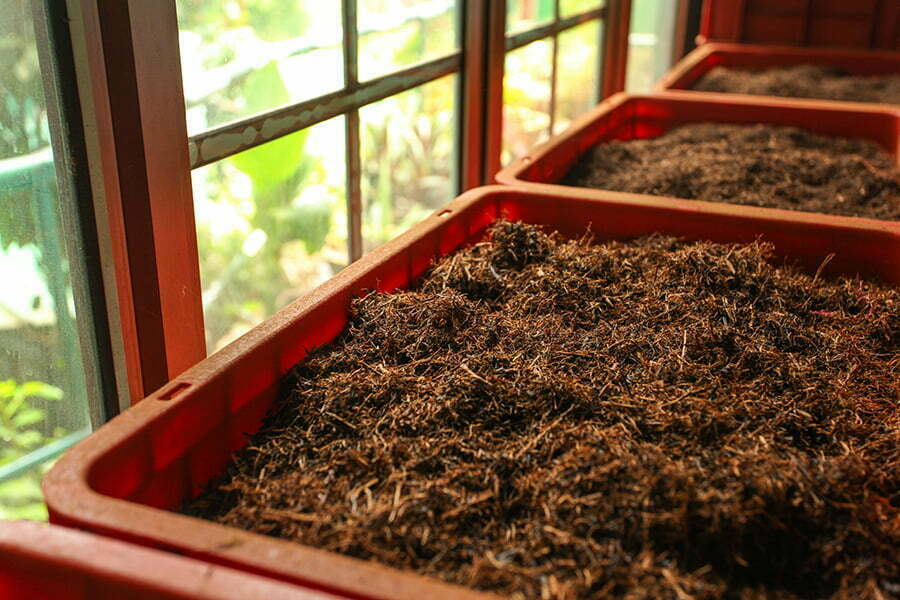
One unique alternative to a traditional trash can is a worm farm. A worm farm, also known as vermicomposting, uses worms to break down organic waste into nutrient-rich compost that can be used in gardens or potted plants.
The advantages of using a worm farm include reducing the amount of waste sent to landfills and creating natural fertilizer for plants. It’s an eco-friendly option that doesn’t require any electricity or special equipment.
However, there are some disadvantages to consider before starting your own worm farm. It may not be suitable for those with limited space or who live in apartments without access to outdoor areas where the worms can thrive.
Also, it requires regular maintenance and attention such as feeding the worms regularly and keeping their environment moist.
If you have space and time available for maintaining a worm farm properly then this could be an excellent way of reducing your household’s carbon footprint while producing valuable compost at home!
Incinerator
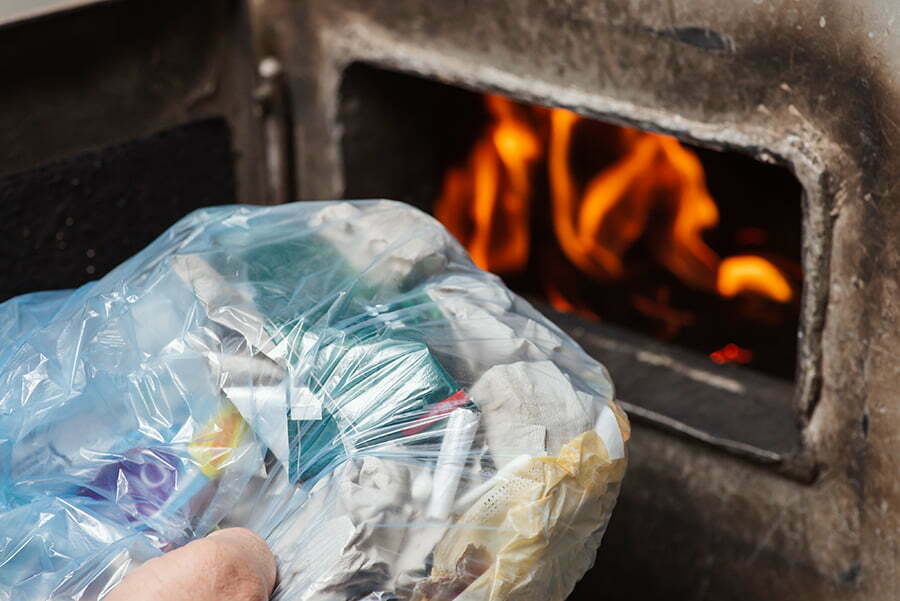
An incinerator is a device that burns waste materials at high temperatures, reducing them to ash.
This option can be particularly useful for those who live in areas without regular garbage pickup or for those who generate large amounts of waste.
Advantages of using an incinerator include the fact that it reduces the volume of waste and eliminates the need for landfill space. Some models can generate heat or electricity as a byproduct, making them more environmentally friendly than traditional trash disposal methods.
However, there are also disadvantages to consider when using an incinerator as a trash can alternative. For one thing, they require significant upfront costs and ongoing maintenance expenses.
They may also produce air pollution if not properly maintained or operated correctly.
While an incinerator may be a viable option for some homeowners looking to reduce their environmental impact and manage their own waste disposal needs on-site; it’s important to weigh both its advantages and disadvantages before investing in this type of equipment as your primary means of disposing household rubbish.
Bokashi Bucket
This Japanese composting method uses a special mix of microorganisms to break down food waste quickly and efficiently, without producing any foul odors or attracting pests.
Advantages: The Bokashi bucket allows you to turn your food scraps into nutrient-rich soil for your garden or houseplants, reducing your carbon footprint and saving money on fertilizer. It’s also compact enough to fit in small kitchens, making it ideal for apartment dwellers.
Disadvantages: While the Bokashi method is effective at breaking down most types of organic matter, it cannot handle meat or dairy products. You’ll need to purchase a starter kit with the microorganism mix which can be costly upfront but will save money over time as you won’t have to buy fertilizers anymore.
There may be an initial learning curve when starting out with this system as proper maintenance is required so that everything runs smoothly.
Cardboard Boxes
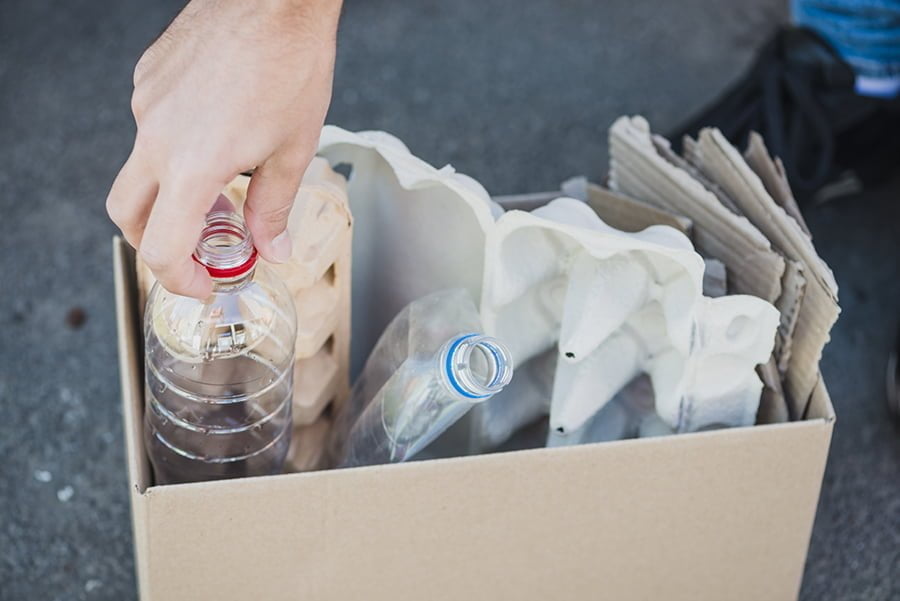
Cardboard boxes are a great alternative to traditional trash cans. They are cheap, easy to find, and can be recycled when they wear out.
You can use any size box depending on your needs and the amount of waste you generate. However, cardboard boxes have some disadvantages too.
They may not be as sturdy as plastic or metal trash cans and could easily tear or collapse if overloaded with heavy items or wet garbage. They may not look aesthetically pleasing in your home decor unless you decorate them creatively with paint or wrapping paper that matches your interior design theme.
Cardboard boxes make an excellent temporary solution for those who need a quick fix until they purchase a more durable option like plastic bins or metal containers for their household waste management needs at home!
Biodegradable Bags
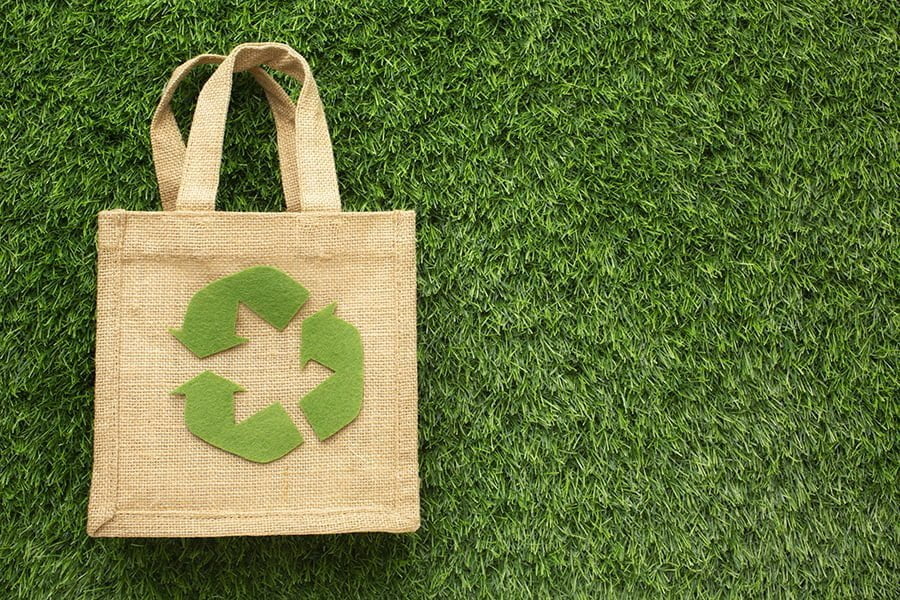
These bags are made from materials that can break down naturally over time, reducing waste and environmental impact.
One advantage of using biodegradable bags is that they are eco-friendly and sustainable. They do not contribute to landfill waste or harm wildlife when disposed of properly.
However, one disadvantage is that they may not be as durable as traditional plastic trash bags, which could lead to leaks or tears if overloaded with heavy items.
Biodegradable bags offer a great alternative for those looking for an environmentally conscious option for their home decor needs while still being mindful of budget constraints.
Zero Waste Lifestyle
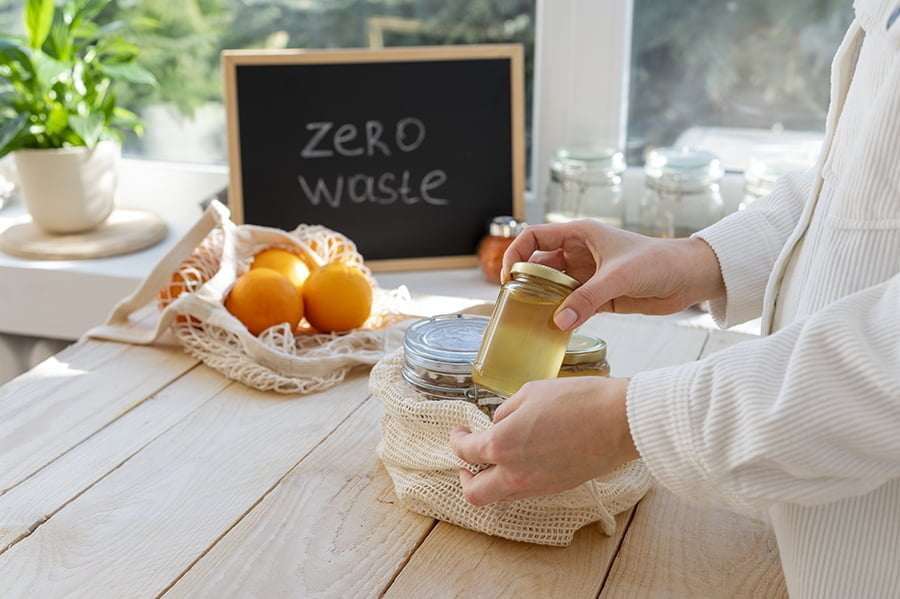
Living a zero waste lifestyle is becoming increasingly popular as people become more aware of the impact their actions have on the environment. This lifestyle involves reducing, reusing, and recycling to minimize waste production.
When it comes to trash cans, those who live a zero-waste lifestyle often opt for alternatives that are reusable or compostable instead of traditional plastic bags that end up in landfills. By choosing these alternatives such as cloth bags or compostable liners made from plant-based materials like cornstarch, they can significantly reduce their environmental footprint while still maintaining a clean and organized home.
By adopting this approach towards waste management at home we can inspire others around us to do the same and contribute towards creating a cleaner planet for future generations.
Upcycled Containers
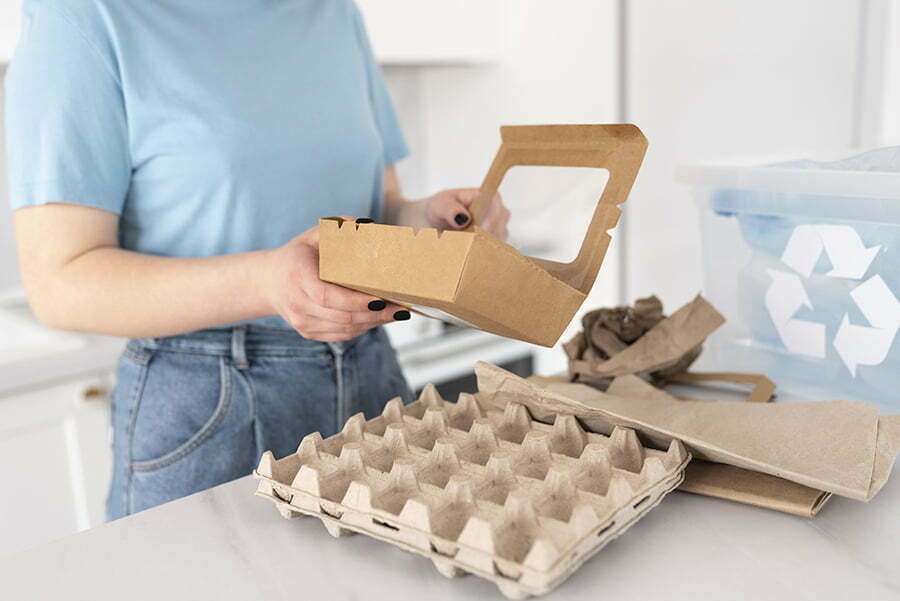
Upcycling is a great way to give new life to old items and reduce waste. Upcycled containers can be used as an alternative to traditional trash cans, adding a unique touch of creativity and sustainability to your home decor.
Advantages: Upcycling allows you to repurpose items that would otherwise end up in the landfill, reducing your environmental impact. It also gives you the opportunity for customization – you can paint or decorate the container however you like.
Disadvantages: Finding suitable materials for upcycling may take some effort and creativity on your part. Not all materials may be durable enough for long-term use as a trash container.
Some ideas for upcycled containers include using old metal buckets or baskets, wooden crates or boxes with added liners, large glass jars with lids (such as pickle jars), or even repurposing an old dresser drawer into a pull-out bin holder.
Incorporating upcycled containers into your home decor not only adds visual interest but also promotes sustainable living practices by reducing waste in creative ways.
DIY Trash Can
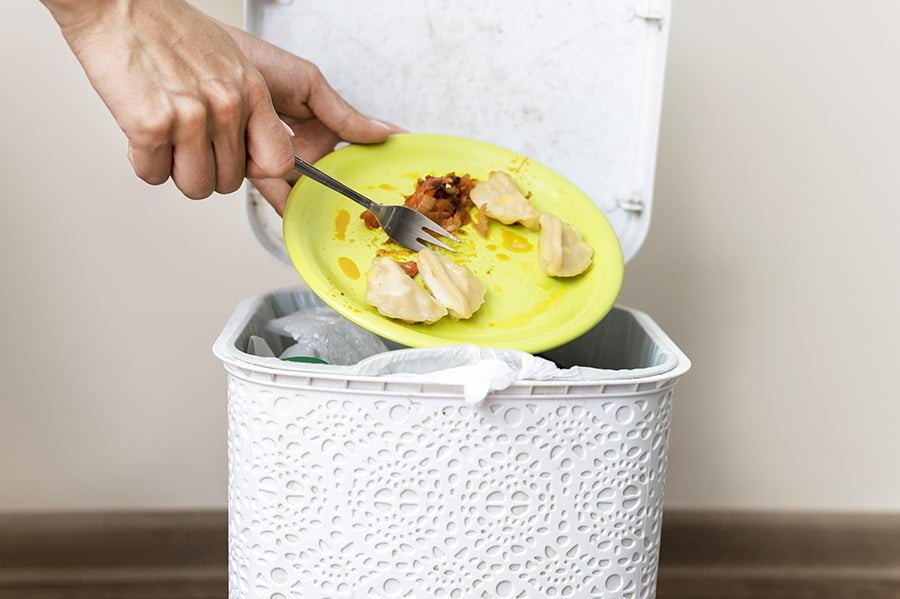
If you’re looking for a budget-friendly and eco-friendly option, creating your own DIY trash can is a great idea. You can use materials that you already have at home or purchase them inexpensively from a hardware store.
One popular option is to repurpose an old wooden crate by adding handles and lining it with a plastic bag. Another idea is to use an empty large coffee tin or paint bucket as the base of your trash can, then decorate it with contact paper or spray paint to match your decor.
The advantages of making your own trash can are that it’s cost-effective, customizable, and environmentally friendly since you’re repurposing items instead of buying new ones. However, there are also some disadvantages such as the potential for leaks if not lined properly and limited capacity compared to traditional garbage cans.
Nonetheless, creating your own DIY trash bin allows you to add personal touches while keeping costs low – perfect for those on tight budgets!
Plastic-free Bins
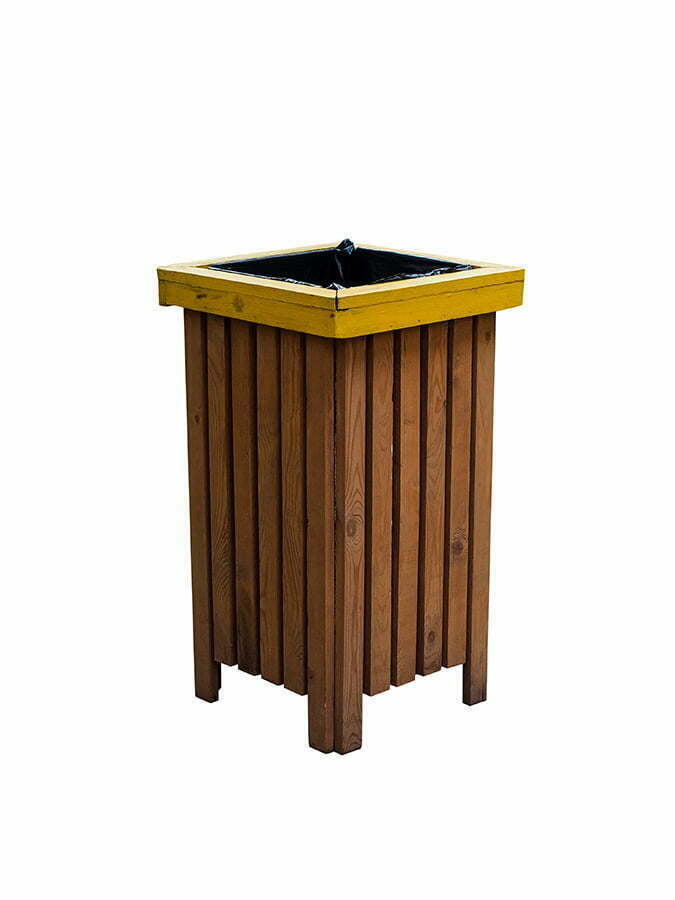
These bins are made from materials such as metal, wood, or bamboo and offer a more sustainable option for waste disposal.
One advantage of using plastic-free bins is that they are eco-friendly and reduce the amount of plastic waste in landfills. They also add a stylish touch to any room with their unique designs and textures.
However, one disadvantage is that some options may be more expensive than traditional plastic trash cans. Certain materials may require special care or cleaning methods to maintain their appearance over time.
Overall though, if you’re looking for an environmentally conscious way to dispose of your household waste while adding some flair to your decor scheme – consider investing in a chic new non-plastic bin!
Solar Compactor
One innovative trash can alternative that has gained popularity in recent years is the solar compactor. This type of trash can uses solar power to compact waste, allowing for more garbage to be stored before needing to be emptied.
The advantages of a solar compactor include its eco-friendliness and efficiency in reducing the frequency of emptying. However, it may not be suitable for all environments as it requires access to sunlight and may have a higher upfront cost compared to traditional trash cans.
Maintenance and repair costs should also be considered when investing in this technology. If you’re looking for an environmentally-friendly option that reduces waste volume while saving time on emptying duties, then a solar compactor could definitely fit your needs!
Vermicomposting
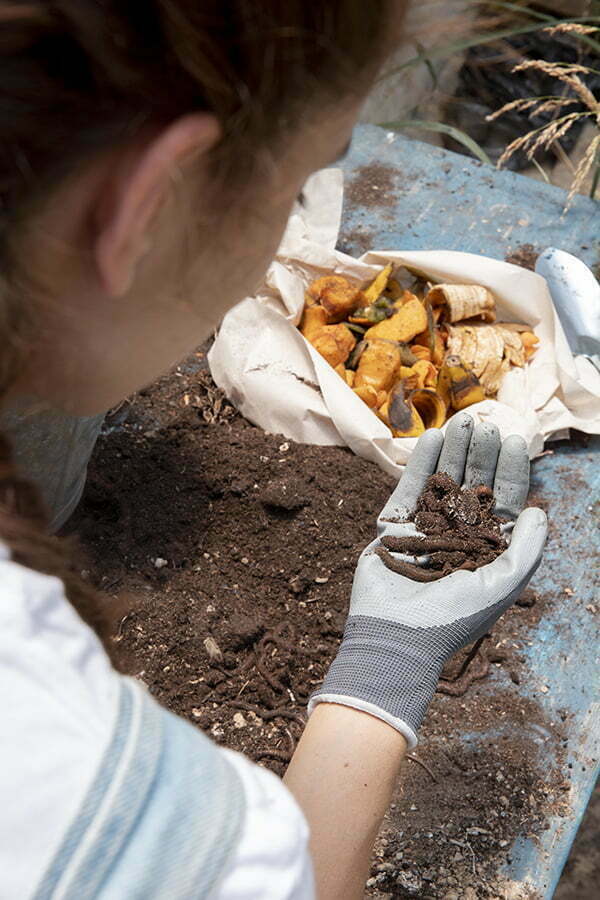
Vermicomposting is the process of using worms to break down organic waste into nutrient-rich compost.
This method not only reduces the amount of waste sent to landfills but also produces a valuable resource for gardening and farming.
The advantages of vermicomposting are numerous. It’s an eco-friendly way to dispose of food scraps, paper products, and other organic materials that would otherwise end up in a landfill.
The resulting compost can be used as fertilizer for plants or sold as a soil amendment.
However, there are some disadvantages to consider before starting your own vermicompost bin at home. First, it requires space and proper ventilation so that odors don’t become overwhelming indoors or attract pests like fruit flies or rodents if kept outside without protection from them.
Secondly, maintaining the right balance between moisture levels and temperature can be challenging since worms need specific conditions (not too wet nor dry) in order thrive properly which may require more attention than simply throwing things away into regular trash cans.
Fabric Waste Baskets
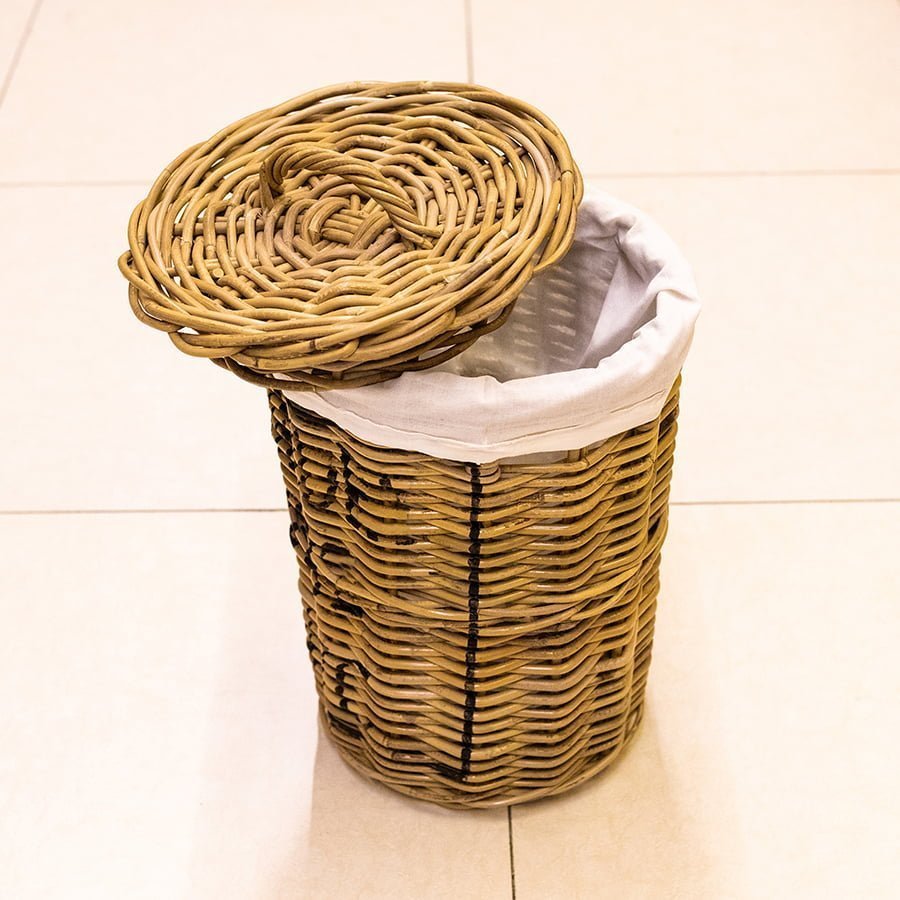
Fabric waste baskets are a great alternative to traditional plastic or metal trash cans. They come in various sizes, shapes, and colors that can complement any room’s decor.
These waste baskets are made from different types of fabrics such as cotton, linen, jute or canvas.
One advantage of fabric waste baskets is their eco-friendliness. Unlike plastic bins which take hundreds of years to decompose in landfills and pollute the environment with harmful chemicals when burned; fabric bins can be easily recycled or repurposed into other items like tote bags.
Another advantage is their softness which makes them ideal for use in bedrooms where you don’t want hard edges that could cause injury if bumped into during the night. However, this same softness also means they may not hold up well under heavy use and may need frequent washing.
Glass Jars for Sorting
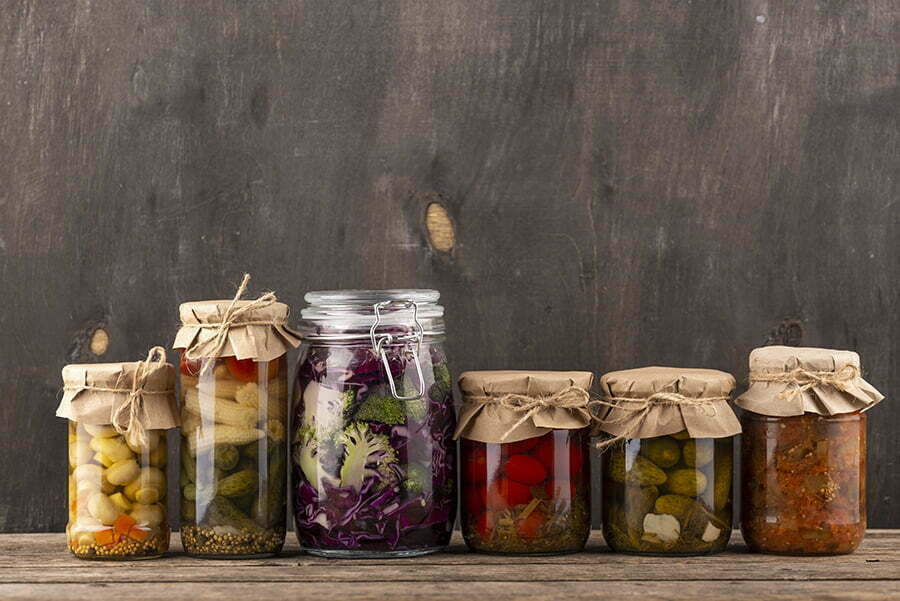
Glass jars are a great alternative to traditional trash cans for sorting small items such as paper clips, rubber bands, and other office supplies. They can also be used in the kitchen for storing spices or dry goods like beans and rice.
The advantage of using glass jars is that they are transparent, making it easy to see what’s inside without having to open them up. They add a decorative touch to any room with their sleek design.
However, there are some disadvantages when using glass jars as trash can alternatives. For one thing, they may not be large enough for bigger items like food scraps or packaging materials which means you’ll still need another container for those types of waste products.
Also if dropped accidentally on hard surfaces such as tiles or concrete floors the jar could break into pieces causing injury and creating more mess than before.
Shared Community Bins
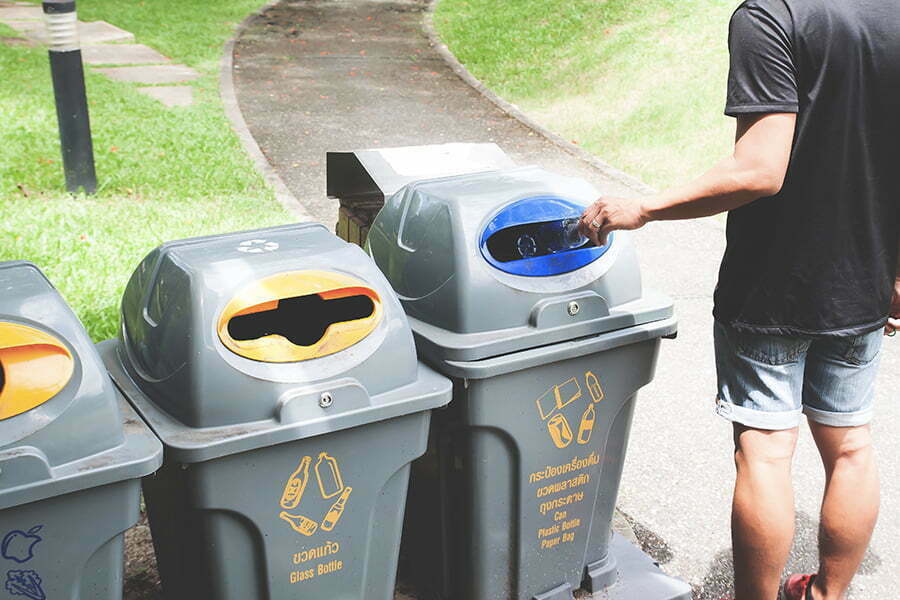
Shared community bins are a great option for those who live in apartment complexes or communities where space is limited. These large bins are typically placed in a central location and can be used by multiple households.
One advantage of shared community bins is that they can help reduce waste and promote recycling, as residents may be more likely to properly dispose of their trash if there is a designated area for it.
However, one disadvantage of shared community bins is the potential for overflowing or unsanitary conditions if not properly maintained by the property management team. Some residents may find it inconvenient to have to walk to the bin every time they need to dispose of their trash.
Shared community bins can be an effective solution for managing waste in densely populated areas but require proper maintenance and consideration from all users.
Eco-bricks
One of the most innovative and eco-friendly trash can alternatives is the use of Eco-bricks. These are plastic bottles that have been filled with non-biodegradable waste such as candy wrappers, chip bags, and other small items that cannot be recycled.
The idea behind Eco-bricks is to create a building material out of waste materials that would otherwise end up in landfills or oceans.
The advantages of using Eco-bricks are numerous. First, they help reduce the amount of plastic waste in our environment by repurposing it into something useful.
Second, they provide an affordable alternative to traditional building materials like bricks or concrete blocks which can be expensive for those on a budget.
However, there are also some disadvantages to consider when using Eco-bricks as a trash can alternative. One major concern is their durability over time since plastic may break down due to exposure from sunlight and weather conditions causing them not suitable for long-term use outdoors without proper protection.
Charcoal Filter Pails
Charcoal filter pails are a great alternative to traditional trash cans. These pails come with a built-in charcoal filter that helps to absorb odors, making them perfect for use in the kitchen or any other area where unpleasant smells may be an issue.
The filters can last up to six months before needing replacement, which is another advantage of this type of trash can alternative.
One disadvantage of using charcoal filter pails is that they typically have smaller capacities than regular trash cans and need more frequent emptying. These types of containers tend to be more expensive than standard plastic bins.
However, if you’re looking for an eco-friendly option that will help keep your home smelling fresh and clean without breaking the bank on pricey air fresheners or constantly replacing bags in your traditional garbage bin – then investing in a charcoal filter pail might just be worth considering!
Hanging Mesh Organizers
Hanging mesh organizers are a great alternative to traditional trash cans, especially in small spaces. These organizers can be hung on the wall or door and come in various sizes and shapes.
They are perfect for storing small items like paper, plastic bottles, or food packaging.
One of the advantages of hanging mesh organizers is that they take up very little space compared to traditional trash cans. They also allow you to easily see what’s inside so you can quickly identify what needs to be disposed of.
However, one disadvantage is that they may not hold as much waste as a regular trash can would. If not emptied regularly, odors from the waste could become an issue.
Overall though, hanging mesh organizers provide an affordable and practical solution for those looking for alternatives to traditional trash cans while still keeping their living space organized and clutter-free.
Recap
